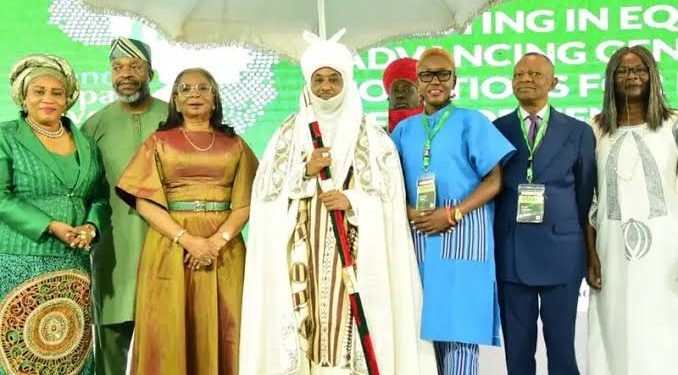Nigeria’s push toward a more inclusive economy is gaining momentum as the Impact Investors Foundation (IIF) unveiled a bold plan to mobilise $8 billion in gender-inclusive capital over the next decade. The initiative, launched through its new Gender Equity and Social Inclusion (GESI) Roadmap 2025–2035, aims to dismantle systemic barriers and unlock opportunities for women, youth, and People with Disabilities (PwDs) in the country’s investment landscape.
The roadmap, revealed at the third Gender Impact Investment Summit (GIIS) in Lagos under the theme “Investing in Equity: Advancing Gender-Led Solutions for Inclusive Development,” lays out a 10-year strategy to embed inclusive investment practices across Nigeria’s economy. Developed in collaboration with PwC Nigeria, it sets ambitious milestones, including a cumulative $8 billion in capital mobilisation, the creation of 40 inclusive financial products, the establishment of $1.5 billion in domestic capital pools, 90 percent adoption of GESI principles among general partners, and the enactment of 20 new policy and regulatory instruments.
Described by IIF’s chief executive as more than just a plan, the roadmap is positioned as a blueprint for a transformative economic shift. “The scale of the targets underscores our profound commitment to a future where no one is left behind,” she said, emphasising the organisation’s drive to make inclusivity central to investment and growth.
As part of efforts to translate the plan into measurable outcomes, IIF also launched the Nigeria Inclusive Capital Commitment 2035 campaign. The campaign calls on governments, investors, market enablers, and intermediaries to take tangible steps, from embedding GESI principles into investment decisions to delivering real economic benefits for underrepresented groups.
Highlighting why the roadmap matters, IIF’s chairman said persistent financial exclusion for women, youth, and PwDs has long constrained Nigeria’s economic growth. He stressed that the initiative goes beyond social considerations and is, in fact, an economic necessity. By breaking down financial barriers, he noted, the country can unlock vast untapped potential and ensure that growth is not just rapid but also equitable and transformative. “This is how we ensure Nigeria’s future is built on equity for every citizen,” he said.
Also speaking at the summit, the chair of GSG Nigeria Partner underscored the need for accountability, explaining that the roadmap shifts focus from ambition to action. Stakeholders, she said, must integrate GESI principles into all investment decisions and policies to close financing gaps and unlock the country’s full economic potential.
For Nigeria’s small and medium-sized enterprises (SMEs), which already power much of the nation’s job creation and innovation, the GESI roadmap could prove pivotal. With women and young entrepreneurs forming a large share of this sector, improved access to inclusive finance and policy support could accelerate business growth, drive job creation, and help build a more resilient, inclusive economy over the next decade.










